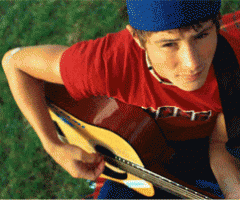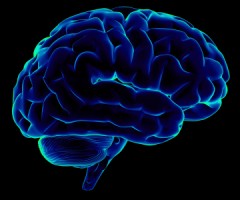Adolescence is a time of profound brain growth and change. It has been shown that the brain of an early adolescent compared to that of a late adolescent is different in the areas of anatomy, biochemistry, and physiology. As the adolescent brain moves toward adulthood it becomes faster and more efficient at processing information. One area in particular that becomes more efficient is the frontal lobes. The frontal lobes are involved with reasoning, planning, parts of speech, movement, emotions, and problem solving. There is mounting evidence that neuronal circuitry in the frontal lobes is shaped and fine tuned during adolescence, and that experience plays a prominent role in these changes. An important part of the frontal lobe is the prefrontal cortex (PFC). The PFC is responsible for such skills as setting priorities, organizing plans and ideas, forming strategies, controlling impulses, and allocating attention.
Because the adolescent brain is a work in progress, substance use during adolescence has been associated with alterations in brain structure, function, and neurocognition. Alcohol and drug use can have seriously negative effects damaging long and short-term growth processes. In some cases the damage done during adolescence can even be irreversible.
Short-term or moderate drinking impairs learning and memory far more in youth than adults. Research has identified subtle but important brain changes that occur among adolescents who abuse alcohol resulting in a decreased ability in problem solving, verbal and non-verbal retrieval, visuo-spatial skills, and working memory. For example adolescent drinkers scored worse than non-users on vocabulary, general information, memory, and memory retrieval tests than non users. In a study comparing alcohol dependent and healthy control adolescents, it was found that drinkers recalled 10% less verbal and nonverbal information than controls, even after three weeks of monitored abstinence. A similar degree of reduction was found on attentional and speeded information processing tasks as well as deficits in language competence and academic achievement. Deficits in executive functioning, specifically in future planning, abstract reasoning strategies, and generation of new solutions to problems, have also been found.
The association between antisocial behavior during adolescence and alcoholism may be explained by abnormalities in the frontal limbic system, which appears to cause “blunted emotional reactivity.” This can negatively affect self control, decision making, and behavior regulation.
Blackouts, or alcohol induced amnesia in which a person does not remember events or behavior, are also common among adolescent drinkers. This is due in part to the effect of alcohol on neural plasticity in the hippocampus. The hippocampus is involved in the formation of new memories, and it can be disrupted by excessive drinking. As heavy drinking continues, the brain becomes less able to compensate for the disruptions caused by the effects of alcohol. Thus, the more a teen drinks, the higher the chances for developing permanent neuronal damage.
Marijuana use in adolescence has an adverse impact on brain development, leading to poorer performance on thinking tasks as compared to non-drug using peers. Marijuana users also have slower psychomotor speeds, poorer complex attention, weaker verbal memory, and impaired planning abilities. Although studies suggest that verbal memory function can be partially recovered within three weeks of discontinuing marijuana use, complex attention skills continued to be affected.






